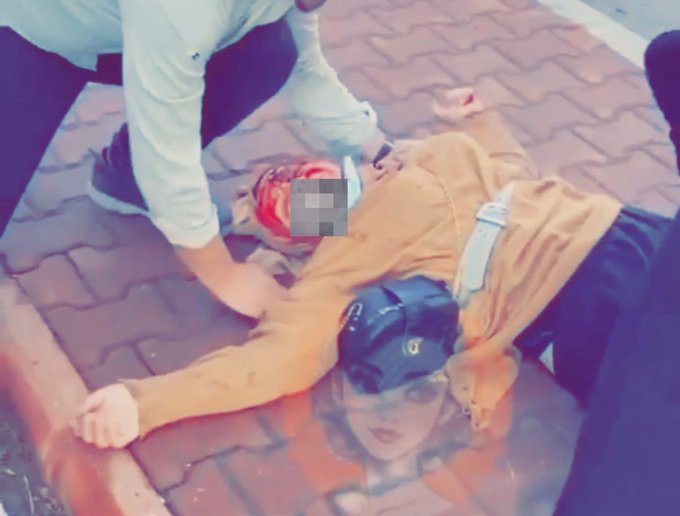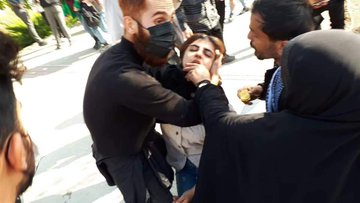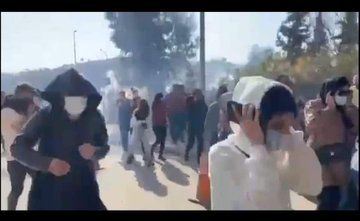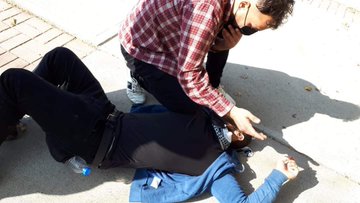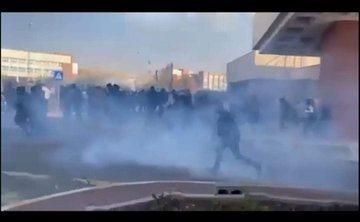Wednesday, November 24, 2021. The US President's son has another scandal exposed, protests continue in Iraq, US troops will remain in Iraq beyond December 31st despite the weasel word push,
It wasn't long ago that a New York Times bombshell about business ties between the president's son and a foreign entity would have received wall-to-wall coverage, but that was not the case with the paper's newest report about Hunter Biden.
According to the Times, an investment firm that counts Biden among its founders helped a Chinese company purchase one of the world’s most lucrative cobalt mines from an American company while his father, Joe Biden, was vice president. This is renewing concerns about potential conflicts of interest and whether the now-current president had any knowledge about his son's business dealings, which he had previously denied.
However, the stunning report published by the Times received zero coverage on CNN, MSNBC, ABC, CBS and NBC, according to transcripts.
The lack of scrutiny towards President Biden's son is nothing new. During the final weeks of the 2020 presidential election, the liberal networks famously avoided covering Hunter Biden's damning laptop that further shed light on his foreign business dealings.
CNN, specifically, spiked the Hunter Biden story as its top bosses were caught on leaked audiotapes saying "we're not going with" the bombshell first reported by the New York Post.
An investment firm where Hunter Biden, the president’s son, was a founding board member helped facilitate a Chinese company’s purchase from an American company of one of the world’s richest cobalt mines, located in the Democratic Republic of Congo.
Mr. Biden and two other Americans joined Chinese partners in establishing the firm in 2013, known as BHR and formally named Bohai Harvest RST (Shanghai) Equity Investment Fund Management Company.
The three Americans, all of whom served on the board, controlled 30 percent of BHR, a private equity firm registered in Shanghai that makes investments and then flips them for a profit. The rest of the company is owned or controlled by Chinese investors that include the Bank of China, according to records filed with Chinese regulators.
When the mine was sold, Mr. Biden’s father was near the end of his term as vice president. In the run-up to the 2020 presidential election, Hunter Biden’s business ties in China were widely publicized.
But BHR’s role in the Chinese mine purchase was not a major focus. It has taken on new relevance because the Biden administration warned this year that China might use its growing dominance of cobalt to disrupt America’s retooling of its auto industry to make electric vehicles. The metal is among several key ingredients in electric car batteries.
When asked if the president had been made aware of his son’s connection to the sale, a White House spokesman said, “No.”
Defying a warning from local militias, a Pentagon official has told Newsweek that U.S. forces will remain in Iraq after the scheduled end of combat operations on December 31.
With less than a month and a half left in the year, an ensemble of Iraqi paramilitary factions known as the Iraqi Resistance Coordination Commission shared with Newsweek a message Friday expressing disappointment with the lack of U.S. military drawdown.
Following talks with Iraqi Prime Minister Mustafa al-Kadhimi in July, President Joe Biden had promised an end to the U.S. combat mission in the country by year's-end.
Thousands of students took to the streets in the city of Sulaymaniyah today for the third day in the row. Security forces used live gunfire to try and disperse the crowds, the pro-opposition news outlet NRT reported.
Protests also occurred in the Kurdistan Region capital Erbil as well, in addition to smaller cities like Halabja and Kalar, according to the Erbil-based news outlet Rudaw.
The protesters are demanding the Kurdistan Regional Government (KRG) resume paying stipends to students. The KRG used to pay university students roughly between $20 and $70 a month for living expenses. The KRG stopped the payments in 2015 due to the economic crisis brought on by the Islamic State (IS), the influx of displaced people into the region and drops in oil prices. Many students believe these factors no longer apply, according to the Esta news outlet in Sulaymaniyah.
Jeanine Plasschaert, Special Representative and Head of the UN Assistance Mission for Iraq (UNAMI) said clashes erupted in the weeks following the vote, with demonstrations and sit-ins escalating into violence and casualties reported.
Describing Iraq’s current outlook as “precarious”, the Special Representative recalled that the October elections themselves emerged from an unprecedented wave of country-wide demonstrations in 2019.
Marked by violence, excessive use of force, abductions and targeted killings, the protests left hundreds dead and thousands injuried.
The country’s current fragile peace also comes on the heels of decades of conflict, which prevented ordinary civilians from making their voices heard.
“A lack of political, economic and social prospects made many, many Iraqis take to the streets”, said Ms. Plasschaert. “Their demands and grievances remain as relevant as ever”.
